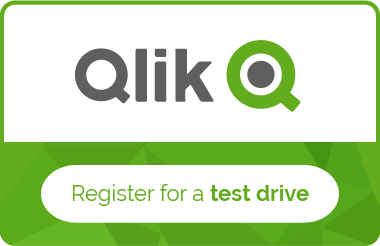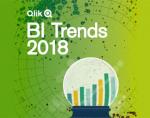Is Blockchain The Future Of Data Analytics In Australia?

"Blockchain will be more disruptive than electricity."
This quote comes from Jeff Schumacher of BCG Digital Ventures, and sums up the current mood about this digital technology. Blockchain has the power to reshape civilisation, from how we exchange currency (where the tech originated, which we'll get to in a moment) to how we gather, protect and consume digital information.
Which leads us to our big question: How will blockchain revolutionise big data, if at all? We discuss some basics about blockchain in the Australian context - which was a key talking point at the recent CFO Edge event - and the ways we believe it will benefit business intelligence.
What Is Blockchain?
Blockchain is the underlying technology behind cryptocurrencies like Bitcoin and Ethereum.
It's like a digital ledger - information is written into a single "block", and when that block is finished, it moves into the "chain". The chain is accessible by anyone, anywhere, and every single access point holds the same information. Essentially, this makes it theoretically unhackable: If you try to modify a block in London, it won't match up with the same information stored in Sydney, New York or Shanghai, so the modification won't get into the chain.
To learn more, check out this animation from the World Economic Forum:
Blockchain In Australia
Australia is a nation leading the way in blockchain use, although the road ahead is still long.
The ASX, for example, is trialling the use of blockchain as a replacement for its existing CHESS system. The idea here is that by using digital ledger tech (DLT), there would be greater record keeping in the post-trade equities market, as well as faster transactions and better-quality data.
Treasurer Scott Morrison believes that blockchain could have "significant productivity, security and efficiency gains" for Australia, and has been championing blockchain research. Now a raft of organisations are involved with DLT in some capacity, including CSIRO, Westpac, CommBank, BHP Billiton and the World Wildlife Fund.
The Relationship Between Blockchain And Big Data
For big data to be effective, companies must gather vast quantities of information, store it, and be able to not only access, but also distill it into legible insights. While this is where Hadoop alongside software such as Qlik have greatly helped the industry, blockchain could improve on some of the same principles.
These are the benefits some analysts believe blockchain will provide to the big data sector:
Greater data integrity
Hadoop is already somewhat decentralised, but blockchain takes this to a much further extreme. Theoretically, if a multinational corporation used blockchain for its big data, it could store information from every location in servers around the globe, and no two servers would contradict each other. C-suite execs would have access to insights that span their entire global network, without concern that the data in their location was out of date compared to, say, a server in another country.
Easier to control
In the same way as the point above, a decentralised platform makes data easier to maintain and control. System admins in each location have access to a single node, but that node gives them visibility across the entire chain. If one system goes down or, in an extreme situation, it is compromised, the information cannot be modified because it would contradict the other nodes.
Easier to audit
Blocks are written into the chain in chronological order, and each action has a digital signature stamped into it. Theoretically, this would make the trail of information from source through to storage easy to track and audit, because a detailed history will always exist.
Examples Of Blockchain In Use
Let's look at how blockchain-based big data could help two very different Australian sectors: Fintech and healthcare.
Fintech
Because DLT records absolutely everything, financial analysts could potentially mine customer transactions in real time. They could learn spending habits in detail, or more importantly, track patterns using analytics and detect fraud as it occurs. This, of course, sparks a number of privacy concerns, but the industry is burgeoning and guidelines will no doubt evolve as does the tech.
Healthcare
Getting data wrong in healthcare could cost somebody their life. Blockchain can provide a number of data guarantees that doctors and healthcare administrators could use to better learn about their patients and, subsequently, provide better care. Customer records would be secure, highly accurate, and be accessible by multiple different providers - the latter helping calm the fear that important information would be lost in transit.
In Conclusion
Blockchain is not a magic solution for Australian businesses looking to invest in big data - not yet, anyway. There are still a number of privacy and security concerns, not to mention cost implications relating to a need for entirely new infrastructures, but it's all developing at a rapid rate.
For now, local businesses can turn to existing platforms to get fast, accurate insights on their big data. And that's where Inside Info comes in: We can provide some of the best business intelligence software in Australia, for mid-market and large enterprises.
Related Articles
No results found
Please refine your search criteria and search again




